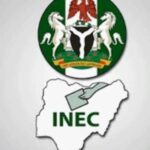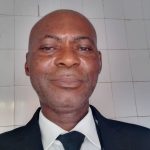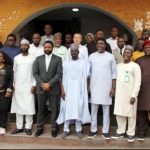From David Onuoja, Abuja
The Independent National Electoral Commission (INEC), has called on the current National Assembly to enact a law that would back and affirmed Justice Mohammed Uwais Committee (2009), Sheikh Ahmed Lemu Committee (2011) and the Senator Ken Nnamani Committee (2017) reports in order to foster electoral system in Nigeria.
Professor Mahmood Yakubu, who is the INEC chairman, stated this while addressing National Assembly Members on Electoral Matters and other stakeholders during a retreat in Lagos recently.
Yakubu said, for election bruhaha to at least come to a barest minimum, the reports of the committees must be taken into cognisance.
According to him, “to make our electoral laws compliant with judicial pronouncements arising from pre-election and post-election litigations; remove ambiguities and provide clarity in some areas arising from the reports of national and international election observers; introduce good practices learnt from other relevant jurisdictions during study tours and election observation missions.
“And to implement some of the recommendations from the high profile electoral reform committees, such as the Justice Mohammed Uwais Committee (2009), the Sheikh Ahmed Lemu Committee (2011) and the Senator Ken Nnamani Committee (2017) must be incorporated into the electoral laws.
“For us in INEC, the coming together of lawmakers, who also have field experience as practising politicians, and the Commission, as the election management body saddled with the constitutional responsibility of organizing, undertaking and supervising all elections in Nigeria (except the local government elections), is a positive development for electoral reform in Nigeria.
“As we are aware, a perennial problem in the conduct of elections in Nigeria has been the postponement of the dates fixed for General Elections on two occasions since 2011 as a result of logistics challenges associated with the production and delivery of sensitive materials (ballot papers and result sheets). **The present Commission was determined to change the embarrassing narrative.
“After a thorough review, we came to the conclusion that the problem was not one of technical capacity. Nigerian printers have the capacity to meet our needs. The real challenge was time management.
“Under the 2010 Electoral Act (as amended), the Commission had just 60 days between the conclusion of party primaries and the conduct of the General Election election to know which political party was fielding candidates in each of the 1,491 seats made up of 1 presidential constituency, 28 governorship, 109 senatorial, 360 federal and 993 state constituencies.
“We need the information for customisation of the ballot papers and results sheets. Moreover, the Voters’ Register, which is the basis for planning the procurement of sensitive materials, has been increasing with every election by an average of 10 million new voters from 2011 to the last election in 2023.
“The solution was to amend the Electoral Act to provide for more time between party primaries and the nomination of candidates on the one hand and the dates fixed for the election on the other. The Commission initially asked for one year, which was not favourably considered by the lawmakers who eventually settled for the current 180 days (that is six months).
“Consequently, for the first time in three electoral cycles, the 2023 General Election was not postponed on account of logistics associated with the printing and delivery of sensitive materials”, he said.
INEC boss equally appealed to the National Assembly to expedite action to conclude the electoral legal framework speedily so that the Commission will have enough time for its implementation.






